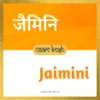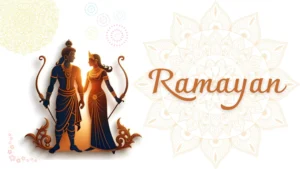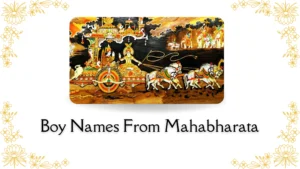In the timeless rhythm of our Sanatan Dharma, every name carries the breath of divinity, every syllable a sacred whisper from the depths of our civilization’s eternal wisdom. Our Hindu heritage is not merely a tradition, but a living, pulsating consciousness that has flowed through millennia, nurtured by the profound insights of saints and sages who illuminated the path of spiritual awakening.
When we choose to name our child after these spiritual masters, we do more than select a mere collection of sounds. We are weaving our infant’s destiny with threads of profound virtue, connecting their nascent journey with the luminous spirits who have traversed the intricate pathways of spiritual understanding. Each name becomes a blessing, a silent prayer, a profound invocation of the highest human potential.
This compilation is not simply a list of names. It is a spiritual pilgrimage through the sacred landscape of India’s greatest saints and sages—a curated journey that offers parents an opportunity to bless their sons with identities steeped in wisdom, courage, and transcendental knowledge. By selecting a name from this collection, you are not just naming a child; you are bestowing upon him a legacy of spiritual inheritance, a connection to the timeless wisdom that has been the heartbeat of our civilization.
In the gentle embrace of these names lies the power to inspire, elevate, and guide—transforming a mere name into a lifelong spiritual compass that will illuminate your child’s path through the complex labyrinth of human existence.
Let us embark on this sacred voyage of naming, where each appellation is a testament to the profound spiritual richness of our beloved Bharat.
Why Choose Names Inspired by Saints and Sages?
Names are not static symbols, but dynamic energies. When we name a child after a saint or sage, we are passing down more than a tradition—we are transmitting a revolutionary way of perceiving life. These names carry within them the seeds of transformation, challenging the child to look beyond the conditioned mind and discover their true nature.
Wisdom does not belong to a specific time or culture. The insights of our spiritual masters transcend generations, speaking to the fundamental questions of human existence. By selecting a name rooted in this profound understanding, we offer our child a compass—not to follow blindly, but to inquire, to understand, to evolve.
India’s saints and sages are not relics of the past, but living representations of a profound philosophical inquiry. They embody a radical approach to understanding consciousness, challenging societal norms, and exploring the depths of human potential. Their names are not mere historical markers, but invitations to a deeper, more authentic way of being.
The Comprehensive List of India’s Greatest Hindu Saints and Sages Names for Your Baby Boy with Meaning
Explore our definitive list of names for your baby boy, inspired by the greatest Hindu saints and sages of India, each accompanied by its meaningful significance:
"most excellent," "wealthy," "best," or "most prosperous."
"Friend of the Universe" or "Friend to All"
"one who has a great spirit" or "the one who is capable of overcoming all." It is often associated with wisdom and knowledge.
"one who is not a sinner" or "a holy person." It is often associated with purity and righteousness.
"Bearer of Knowledge" or "One who has absorbed and disseminates wisdom."
"reddish-brown" or "tawny-colored"
"Destroyer of adversities" or "One who cuts away sins or obstacles."
"Giver of wisdom and knowledge" or "one who spreads divine knowledge."
"one who is difficult to live with" or "one who has a difficult life." It can also imply a person who has a fiery temperament or is known for his intense and often wrathful nature.
One who is born in or from the valmika (ant hill). It can also be interpreted as "the one who is created from or emerges from an ant hill", symbolizing purification, transformation, and spiritual rebirth.
Compiler, arranger, one who organizes sacred knowledge.
"the one who dispels darkness" or "the remover of ignorance". This is a symbolic reference to wisdom and enlightenment.
"small particle" or "atom." It is linked to the ancient Indian philosopher and sage Kanada, who is credited with founding the school of Vaisheshika, a system of Indian philosophy that emphasizes the understanding of reality through its smallest indivisible elements (atoms). This school of thought considered the physical world to be made up of tiny, indivisible particles or atoms, which would later influence the development of atomic theory in the West.
"one who is capable of understanding deeply," or "one who is wise".
"one who lights up the world," or "the one who ignites light" in a symbolic sense. This conveys the idea of someone who is a beacon of knowledge, wisdom, or spiritual illumination.
"elephant" or "one who is like an elephant." In some interpretations, it also refers to "one who is strong and powerful." The name is often associated with qualities such as wisdom, strength, and grandeur, akin to the revered elephant, which is a symbol of intelligence, patience, and stability in Hindu culture.
"a great sage" or "seer," and "andeya", which means "death" or "immortal." Therefore, the name can be understood as "one who is blessed with immortality" or "the immortal sage."
"the one with the sage's horn" or "the sage of the peak," symbolizing a highly revered or enlightened sage who reaches great spiritual heights or has a connection to divine wisdom.
"one who is highly learned" or "one who is wise."
"one who is a wise sage" or "one who has a profound understanding." The name is also sometimes associated with the meaning "one who is quick, prompt, or swift."
"Intellect", "Power" or "Strength"or"Inspiration" or "Insight"
Messenger of the Gods, Priest or Sage, Spark or Embers (of divine knowledge and truth)
"one who is associated with curd" or "one who has the qualities of storing or accumulating (knowledge, wisdom, or strength)."
"the shining protector" or "the seer who illumines."Kashyapa is also associated with "tortoise" or "turtle", symbolizing stability, wisdom, and longevity in Vedic traditions.
Divine," "Sacred," or "Holy."The name is associated with purity, spirituality, and a connection to the divine or celestial realms.
"the one with fine or sacred hair" or "the one associated with sacred bodily features."
"one who possesses the fire of austerity (tapas)" or "one with a sacred fire within."
Aruni means "the one who brings light," "dawn," or "reddish glow." The name is derived from the Sanskrit word "arun" (अरुण), which refers to the color of the early morning sun or the reddish glow seen at dawn. In a symbolic sense, the name represents enlightenment, wisdom, and knowledge.
"one who is connected to or born of sacred sacrifice" or "the sage of sacrificial wisdom."
"resplendent", "brilliant", or "shining". It is associated with clarity, wisdom, and enlightenment.
The Wanderer or Traveler or A Sage and Healer
"one who has descended like a pot," or more symbolically, it can be thought of as someone who has descended with a divine purpose or grace, embodying a vessel for spiritual knowledge.
"a follower of the sage Katyayana" or "one who follows the path of the sage Katyayana."
Radiant, auspicious, a wise or learned person
The forest (or abode) of knowledge.
"Not Bound" or "Unfettered" "Black" or "Dark" "One who is free from worldly attachments", signifying liberation and detachment.
Young, child-like, youthful strength
"rising or elevated one," often interpreted as someone who rises to spiritual or intellectual heights. It implies transcendence, enlightenment, and wisdom.
"Compiler or Arranger of the Vedas." Vedavyasa refers to one who has immense wisdom and knowledge, especially related to sacred scriptures and spiritual truths. It signifies a scholarly and divine personality dedicated to preserving and disseminating knowledge.
"one who is well-heard," "renowned," or "well-versed."
"the one who has been tested," "examined," or "proven."It also implies "one who is inquisitive" or "one who seeks knowledge and truth."
"one whose desire is truth" or "one who loves truth." It reflects a deep connection to truthfulness, sincerity, and a quest for higher knowledge.
"friendly," "benevolent," or "compassionate." The name signifies qualities of kindness, love, and goodwill towards others. It represents an individual who embodies harmony, peace, and altruism.
a sacred forest, "a moment" or "an instant" in some contexts, emphasizing the fleeting yet profound nature of time.
"descendant of Shandilya," "son of Shandilya," or "a follower of Shandilya."In some interpretations, it can also denote someone who embodies the qualities of the sage, such as wisdom, serenity, and spiritual insight.
frog or toad. such as agility, quickness, and transformation (as frogs undergo metamorphosis from tadpoles).In some interpretations, Manduka can be seen as symbolic of the ability to adapt to different environments or a journey of transformation (much like a tadpole transforming into a frog).
"one who is dedicated to the truth," "a person who takes a vow to uphold truth," or "the one who is committed to truth."
"born of victory" or "victory’s child."
"the giver of wisdom" or "the one who gives the fruit of wisdom."
"the servant of Tulsi" or "the servant of the divine," reflecting the devotion of the person to God or the divine forces.
"one who brings the chariot of the divine" or "one who brings divine glory". In another interpretation, it also reflects "one who brings the Ganges (Ganga) to the earth" as per the popular legend associated with the name.
"one who causes joy" or "one who brings happiness"). Therefore, the combined meaning of Lomaharshana can be interpreted as "one who brings joy through hair", "one who brings happiness by touching the hair", or simply "one who causes happiness". It carries a gentle and auspicious connotation, suggesting positivity and a source of happiness.
"lotus" or "white lotus." It symbolizes purity, beauty, spiritual awakening, and auspiciousness. The lotus is often associated with spiritual growth and enlightenment, as it rises from muddy waters to bloom in sunlight, representing the journey of the soul towards enlightenment.
"the one with eight twists" or "the one with eight bends". It refers to the sage Ashtavakra, who is said to have been born with a physical deformity, his body twisted in eight places.
"reddish-brown," "tawny," or "golden". It refers to the color of something that is a rich, reddish or golden hue. Pingala is also associated with energy and vitality, referring to the right-hand energy channel in the practice of yoga and Ayurveda.
“the path of the son” or “one who belongs to the lineage.” It may also denote someone who carries the legacy of the ancestors or the teachings of family traditions.
Closing Thoughts
When you choose a name rooted in the wisdom of India’s spiritual luminaries, you are not merely selecting a word, but bestowing a living compass of consciousness.
Explore Naamkosh, our curated repository of sacred names, where each title carries the resonance of enlightened souls. Here, you’ll discover more than alphabetical listings—you’ll uncover pathways of spiritual understanding, names that are themselves teachings.
A name is not a mere label, but an invocation. When we name a child after a saint or sage, we are not constraining their destiny, but offering them a vibrational blueprint of potential. These names are not chains of expectation, but keys of inspiration—opening doors to inner exploration, self-understanding, and universal compassion.
Consider this: a name born from spiritual depths can whisper ancient wisdom into a child’s ear long before they comprehend its meaning. It becomes a silent mentor, a subtle guide nudging them towards understanding beyond societal conditioning.
We invite you to venture into Naamkosh, not as consumers of names, but as seekers of meaning. Let your child’s name be a bridge between the temporal and the eternal.































































Pingback: Names of Baby Boy from Mahabharata with Meaning (January 2025) - Naamkosh